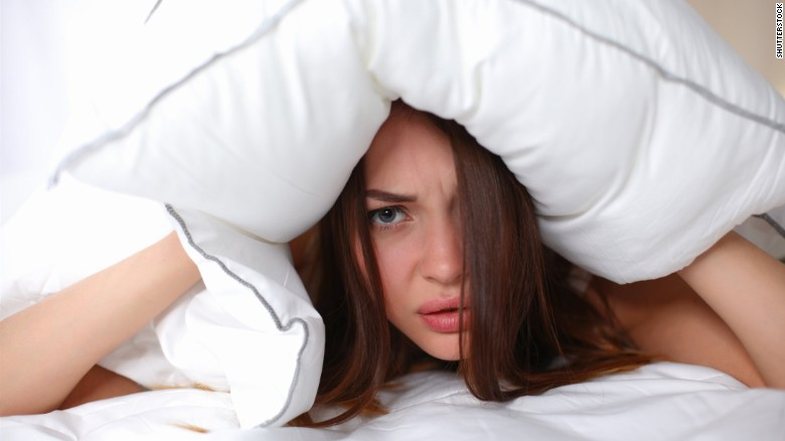
A new study comparing poor sleep among more than one million adults and children in the UK, the Netherlands and the United States found that women experience more insomnia problems than men in all three countries.
The trend emerges during puberty, "suggesting that factors such as sex hormones, stress or ongoing parenting" may contribute to the development of insomnia in women, according to the study published Monday in the journal Nature Human Behavior .
The study also found that women use more sleeping pills than men.
However, despite women struggling to sleep and using sleep aids, women reported no more drowsiness than men during the day.
In addition to women, smokers, overweight people and people of non-European descent were more likely to experience poor sleep, the study found.
Other troubling findings: More than half of children between the ages of 14 and 17 reported sleeping less than their doctor recommended (8-10 hours a night). Adolescents were also more likely to report drowsiness than other age groups.
Symptoms of insomnia, such as difficulty falling and staying asleep, increased as the children grew older.
While some of the research was done in sleep labs using objective measurements, most relied on what people said about their sleep habits and quality. Such research is not as strong, the authors said, but the size and purpose of the research gives physicians insights into day-to-day functioning.
What to do?
Fight insomnia and other sleep problems by creating and making some healthy habits part of your life.
Go to bed and get up from it at the same time every day, even on weekends. The beginning will be difficult, but then you will get used to it.
Exercise regularly to reduce stress and improve sleep. Even just walking every day will help you a lot.
Do not eat fatty or spicy foods near bed, as they may upset your stomach.
Avoid caffeine after 3 p.m.
Avoid high alcohol intake at least four hours before bedtime and do not smoke.
Be careful not to nap for more than 45 minutes during the day.
Keep your bedroom well ventilated and do not make the room too warm or too cold, as it makes waking up and getting out of bed more difficult.
When you sleep, turn off any noise and turn off every day, even the small light that the laptop makes when it is charging.
Source: CNN





